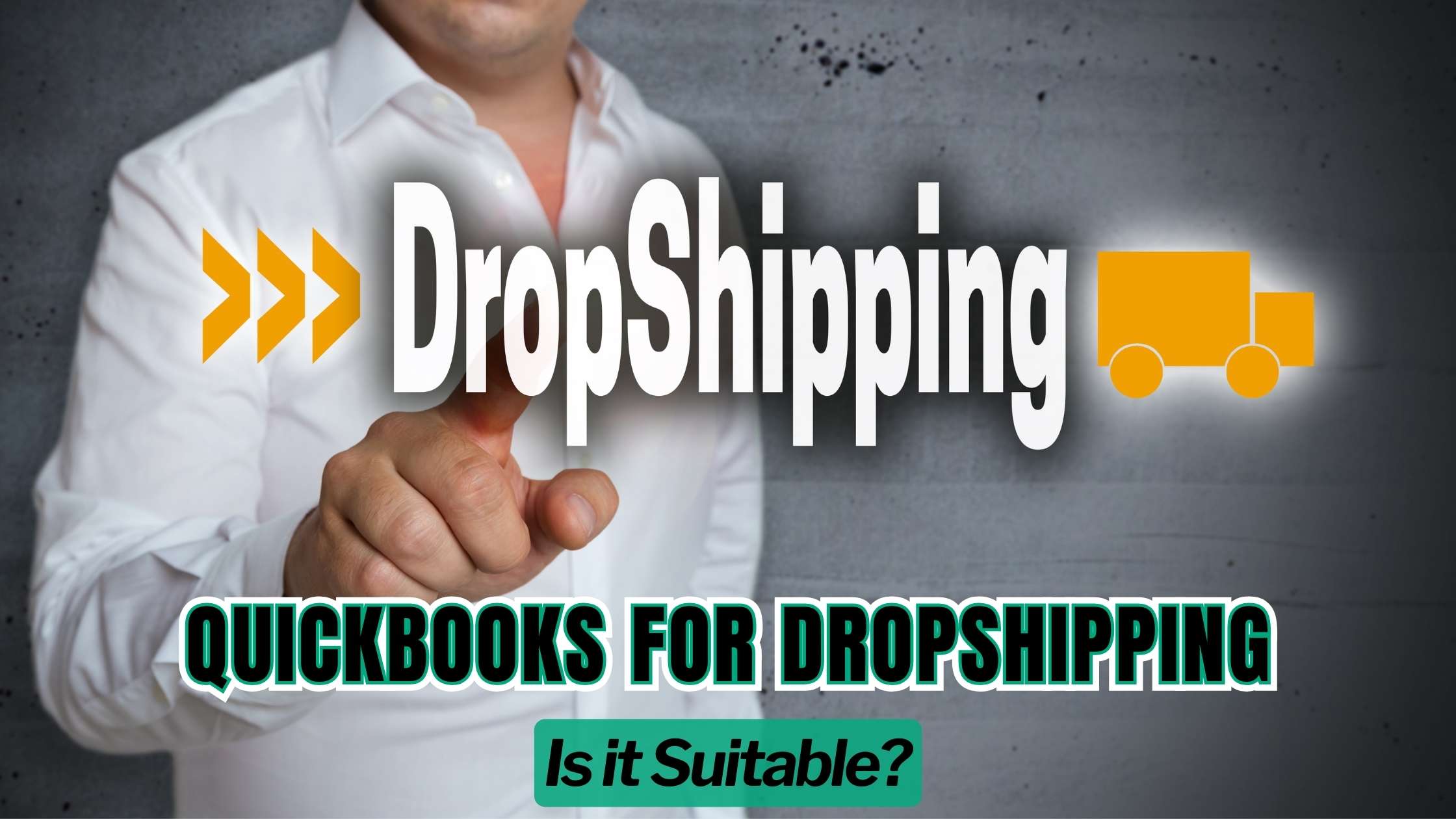QuickBooks for Dropshipping: Is it Suitable?
- Expense Management Software Credit Cards Investing Business Solutions


QuickBooks for Dropshipping: Is it Suitable?
Dropshipping has become a popular business model for entrepreneurs looking to start an e-commerce venture with minimal upfront investment. However, managing finances and keeping track of transactions can be challenging, especially as the business grows. QuickBooks, a leading accounting software, offers robust features that may be beneficial for dropshipping businesses. In this article, we’ll explore whether QuickBooks is suitable for dropshipping, examining its features, benefits, and potential drawbacks to help entrepreneurs make an informed decision.
Understanding Dropshipping and Its Financial Challenges
Dropshipping involves selling products to customers without holding inventory. Instead, the retailer purchases items from a third-party supplier who ships them directly to the customer. While dropshipping eliminates the need for inventory management and warehousing, it presents unique financial challenges, such as tracking expenses, managing cash flow, and reconciling transactions across multiple platforms.
The Role of Accounting Software
Accounting software like QuickBooks is designed to streamline financial tasks, including invoicing, expense tracking, and financial reporting. For dropshipping businesses, using accounting software can help automate bookkeeping processes, provide real-time insights into financial performance, and facilitate tax compliance.
Is QuickBooks Good for Dropshipping?
Entrepreneurs often wonder whether QuickBooks is a suitable accounting solution for managing dropshipping businesses. Let’s explore some key considerations:
1. Automated Bookkeeping
QuickBooks offers automated bookkeeping features that can simplify financial management for dropshipping businesses. By integrating with e-commerce platforms and payment gateways, QuickBooks can automatically sync transactions, categorize expenses, and reconcile accounts, saving time and reducing manual data entry errors.
Relevant SaaS Products:
- QuickBooks Online: Cloud-based accounting software for small businesses.
2. Multi-Channel Integration
Dropshipping businesses often sell products through multiple sales channels, such as online marketplaces, social media platforms, and their own e-commerce websites. QuickBooks provides integrations with popular e-commerce platforms like Shopify, WooCommerce, and Amazon, allowing businesses to consolidate sales data from various channels into a single accounting system.
Relevant SaaS Products:
- Shopify: E-commerce platform for building online stores.
- WooCommerce: WordPress plugin for creating e-commerce websites.
- Amazon Seller Central: Platform for managing sales on Amazon marketplace.
3. Inventory Management
While QuickBooks primarily focuses on accounting and financial management, it offers basic inventory tracking features that may be sufficient for small dropshipping businesses. Users can track stock levels, monitor inventory costs, and generate reports to analyze product performance and profitability.
Relevant SaaS Products:
- TradeGecko: Inventory management software for e-commerce businesses.
4. Financial Reporting
QuickBooks provides robust reporting tools that enable users to generate financial statements, track key performance indicators (KPIs), and gain insights into business performance. Dropshipping businesses can use these reports to monitor revenue, expenses, profit margins, and cash flow, helping them make informed decisions and identify areas for improvement.
Relevant SaaS Products:
- Zoho Analytics: Business intelligence and reporting software for data analysis.
5. Tax Compliance
Tax compliance is a critical aspect of running any business, including dropshipping ventures. QuickBooks helps streamline tax preparation by categorizing transactions, tracking deductible expenses, and generating reports necessary for filing taxes. Additionally, QuickBooks integrates with tax preparation software like TurboTax, further simplifying the tax filing process.
Relevant SaaS Products:
- TurboTax: Tax preparation software for individuals and businesses.
Conclusion
In conclusion, QuickBooks offers a range of features and benefits that make it a suitable accounting solution for dropshipping businesses. From automated bookkeeping and multi-channel integration to inventory management and financial reporting, QuickBooks streamlines financial tasks, improves accuracy, and provides valuable insights into business performance. While there may be some limitations and considerations to keep in mind, QuickBooks remains a popular choice for entrepreneurs looking to manage their dropshipping finances efficiently.
As dropshipping businesses explore accounting solutions like QuickBooks, platforms like Subscribed.FYI offer valuable resources and insights to support their decision-making process. Subscribed.FYI provides comprehensive information about SaaS tools, including accounting software like QuickBooks, helping entrepreneurs compare features, pricing, and user reviews to make informed decisions. Additionally, Subscribed.FYI Deals offer exclusive savings on essential SaaS products, enabling dropshipping businesses to optimize their operations and maximize profitability.
Relevant Product Links:
- Subscribed.FYI
- QuickBooks Online
- Shopify
- WooCommerce
- Amazon Seller Central
- TradeGecko
- Zoho Analytics
- TurboTax








